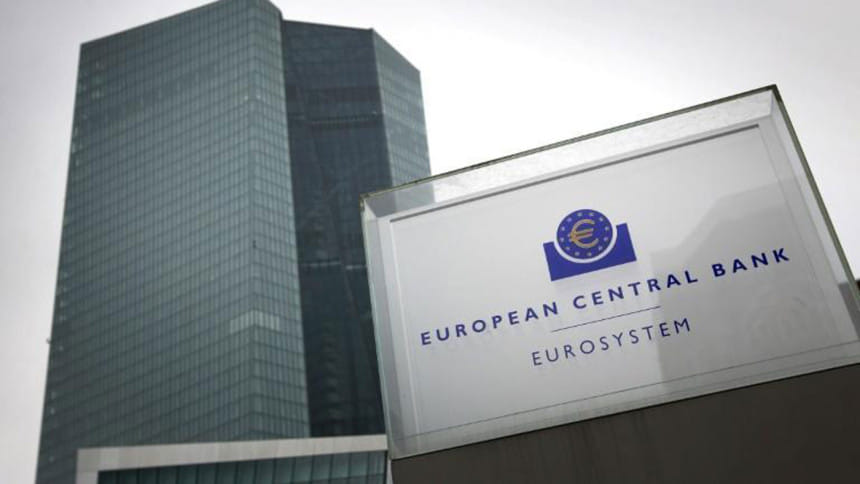ECB plots stimulus exit as inflation looms

European Central Bank policymakers were to gather on Thursday for a crunch meeting, as soaring inflation heaps pressure on the bank to wind down its stimulus just as a new coronavirus variant threatens to derail the recovery.
The Frankfurt-based institution is expected to confirm the planned end of its massive pandemic-era stimulus plan in March, currently hoovering up around 70 billion euros ($78 billion) worth of assets every month.
The 1.85-trillion-euro pandemic emergency bond-buying programme (PEPP) is the ECB's main crisis-fighting tool, aimed at keeping borrowing costs low to stoke economic growth.
The challenge for the ECB's 25-member governing council is finding a way to smooth the transition to avoid upsetting markets or jeopardising the eurozone's fragile rebound from the initial coronavirus shock.
Boosting the bank's pre-pandemic asset purchase programme (APP), currently running at 20 billion euros a month, or creating a new envelope for financial support through 2022 and beyond are two of the options discussed by observers.
The ECB will want to avoid a "cliff-effect" in asset purchases and would settle on an overall rate "between 40 and 60 billion euros" in the second quarter next year, said Konstantin Veit, portfolio manager at Pimco.
In November, prices rose 4.9 per cent year on year in the eurozone, a record in the history of the single currency.
While the ECB has up to now described the spike as "transitory", attributing it to one-off pandemic related factors, inflation has progressed at a rate that has exceeded observers' expectations.
The emergence of the more contagious Omicron variant has raised fears of more pandemic-related disruption, aggravating supply bottlenecks that have pushed prices up faster and hampered economic growth.
Alongside its monetary policy decisions, the ECB will publish its latest set of economic forecasts, including its first set of figures for 2024.
Last updated in September, the bank expected the economy to grow by five per cent in 2021, 4.6 per cent in 2022 and 2.1 per cent in 2023.
On the inflation side, price rises were expected to be 2.2 per cent in 2021 for the whole year, before dropping under the ECB's two-percent target for the next two years at 1.7 and 1.5 per cent.

 For all latest news, follow The Daily Star's Google News channel.
For all latest news, follow The Daily Star's Google News channel. 



Comments